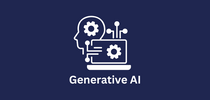-
1
Education Department to Address “Forbearance Steering”
On Tuesday the U.S. Education Department announced that it was taking a series of steps to address problems with two student-loan programs: Public Service Loan Forgiveness and income-driven repayment (IDR). These changes will result in 40,000 borrowers receiving immediate loan forgiveness and move close to 3.6 million borrowers towards debt forgiveness. The Biden administration has prioritized addressing the challenged student financial aid system and is particularly focused on ensuring vulnerable borrowers receive loan forgiveness. Recent investigations have found that loan servicers have “improperly shepherded borrowers into forbearance rather than income-driven repayment plans, a practice called forbearance steering.” In addition, NPR found widespread flaws in how servicers counted income-driven payments. As a result, the Education Department is increasing oversight of loan servicers to monitor forbearance steering practices. Additionally, Federal Student Aid will begin to monitor IDR payments through its own system and post borrowers' progress to its website.
-
2
College Budgets Challenged by Labor Shortages, Inflation
According to recent reports from Moody's Investors Service, “colleges face their highest expense growth in over a decade as rising costs combine with wage inflation, labor shortages and a push to hire.” In the coming year, low unemployment and rising wages will contribute to enrollment uncertainty and unclear revenue for institutions. Instead of high school graduates and adult learners pursuing higher education, particularly at community colleges, they may choose to enter or remain in the workforce. Inflation is hitting low-income households the hardest with the result that these families have less income for tuition or college costs and may choose to defer higher education. In addition, institutions are facing the end of pandemic relief funding. Many schools will be left with “multiyear structural budget deficits.”
“When you’re under stress, it’s detrimental to anything you’re performing — and certainly to being a successful student.” - Dr. Frank Friedman, president of Piedmont Virginia Community College
-
3
In a recent survey from Gallup and the Lumina Foundation, 75% of four-year undergraduates cited emotional stress as the reason they considered dropping out in the past six months. That’s a thirty percent increase from 2020. In addition, both two and four-year college students cited the pandemic and attendance costs as impacting their ability to remain enrolled. Colleges continue to face the challenge of providing support resources such as mental health, financial aid, and academic supports while also making sure students know about college resources and take advantage of them. The survey did indicate that students believe that college is valuable, that their degree will help them pursue their desired career and earn more money.
-
4
Community colleges in California have experienced significant declines in enrollment as an impact of COVID. Large numbers of students who are enrolled have chosen to attend remotely, but educators are concerned because research indicates that “the absence of face-to-face interaction will make it less likely that they’ll succeed.” At Merritt College, student demand for online classes prompted the institution to shift two-thirds of spring classes online versus the fifty percent they had planned for. Institutions are quickly working to develop new resources to augment online learning and support and engage online students. Innovations include assigning mentors, offering online or drop-in counseling and tutoring, and expanding child care resources for online students.
-
“It’s a sea change in terms of how admissions decisions are being made. The pandemic created a natural experiment. Colleges were forced to see how test optional worked.” - Robert Schaeffer, the executive director of the National Center for Fair and Open Testing
-
5
Last week NBC News examined the impact of test-optional admissions policies, which many institutions embraced in light of COVID. MIT recently announced it will return to requiring ACT or SAT scores in part because leadership believes tests can help identify talented students whose high school circumstances may have impacted their grades. However, hundreds of institutions, like the University of California and California State University systems, have permanently adopted test-optional policies. Cornell University enrolled its most diverse class this fall, including a nearly 50 percent increase in the share of first-generation college students. Institutions like Cornell and Yale are studying the results of their test-optional policies to see if they have a bearing on student success and retention. Research from colleges that went test-optional years ago, like Wake Forest University, “shows that students admitted without test scores come from more diverse backgrounds and do about as well in their classes once they arrive as peers who did submit test scores.”
Looking to learn more? Check out these upcoming webinars:
How to Create An Online Success Coaching Program 4/27
Understanding Mental Health Diagnoses: Anxiety, Trauma & OCD 5/6
April 22, 2022



Comments 0